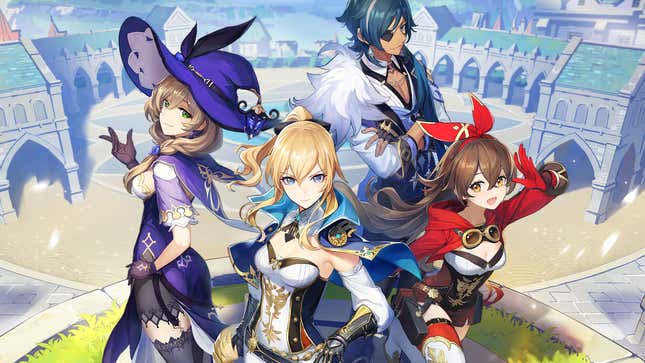
The chat feature in Breath of the Wild-style gacha game Genshin Impact has been found to censor a variety of words, including references to places like Taiwan, Hong Kong, and Tibet.
These details first gained prominence thanks to a video uploaded to Twitter by independent journalist Kazuma Hashimoto. The video, which Kotaku has reuploaded to YouTube with Hashimoto’s permission after he locked down his Twitter account, shows chat messages replacing the terms “Taiwan” and “Hong Kong” with censored characters.
The official Genshin Impact subreddit has also seen sporadic complaints about the game’s censorship. One poster in a thread created earlier today said a “bug” was causing “Tibet” to be censored, while others have noted that more innocuous-seeming words like “words” and “enemies” are also getting the asterisk treatment.
As Genshin Impact developer miHoYo is based out of China, many see this as part of the government’s ongoing efforts to prevent discussion about topics it considers harmful politically. According to a report shared by game industry analyst Daniel Ahmad, Chinese regulatory practices prohibit anything that “threatens China’s national unity, sovereignty, or territorial integrity.”
China’s influence has resulted in projects like Devotion, a Taiwanese horror game that included assets mocking Chinese president Xi Jinping, being removed from online storefronts, but its reach was presumably also the basis for changes made to a recent re-release of Neo Geo classic Baseball Stars 2, which removed longstanding references to Taiwan and its capital city Taipei as baseball team locations.
It’s a complicated situation. While it’s clear that the Chinese government is authoritarian to its core, these policies have also given rise to a growing movement in the gaming community that uses such incidents as cover for racism and Sinophobia. Genshin Impact may just be a victim of an overaggressive chat filter, but as we’ve learned time and time again, China is more than happy to restrict free speech wherever it deems necessary.
Kotaku reached out to miHoYo for comment but did not hear back before publication.